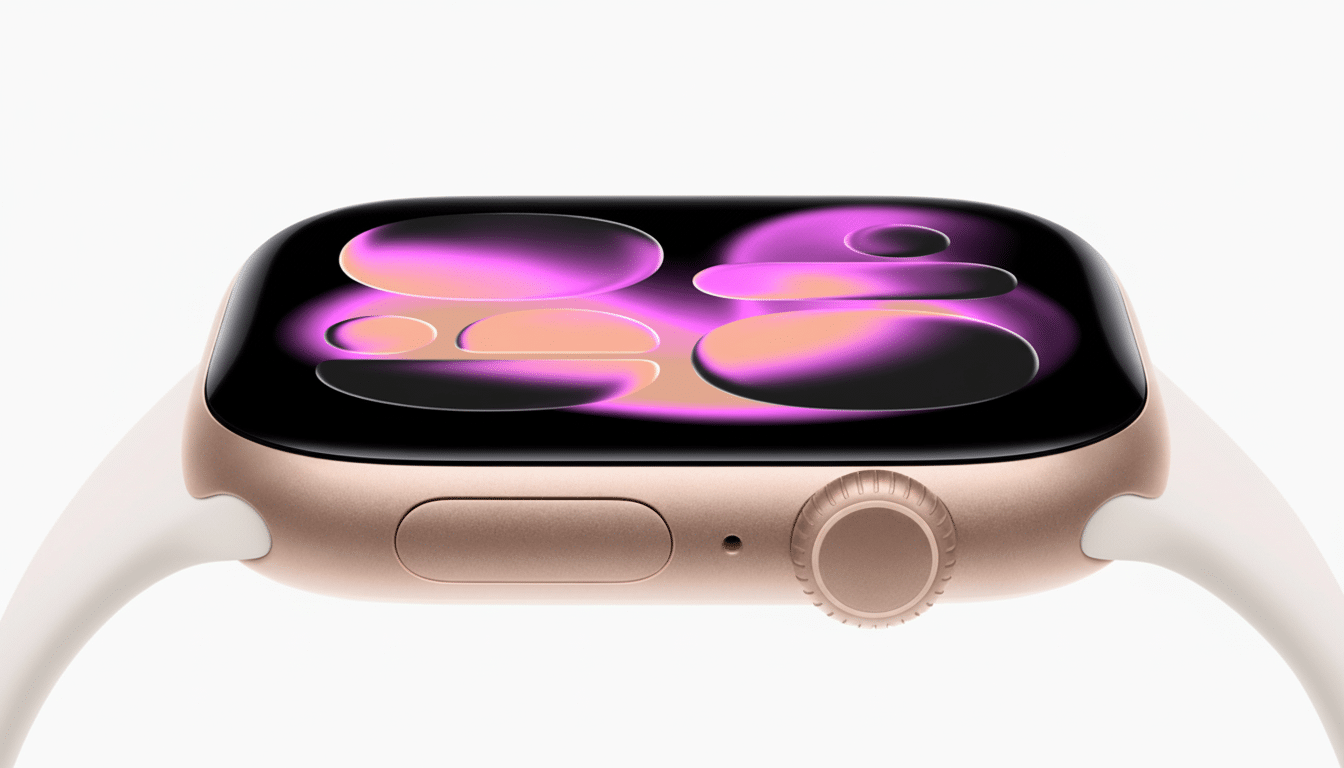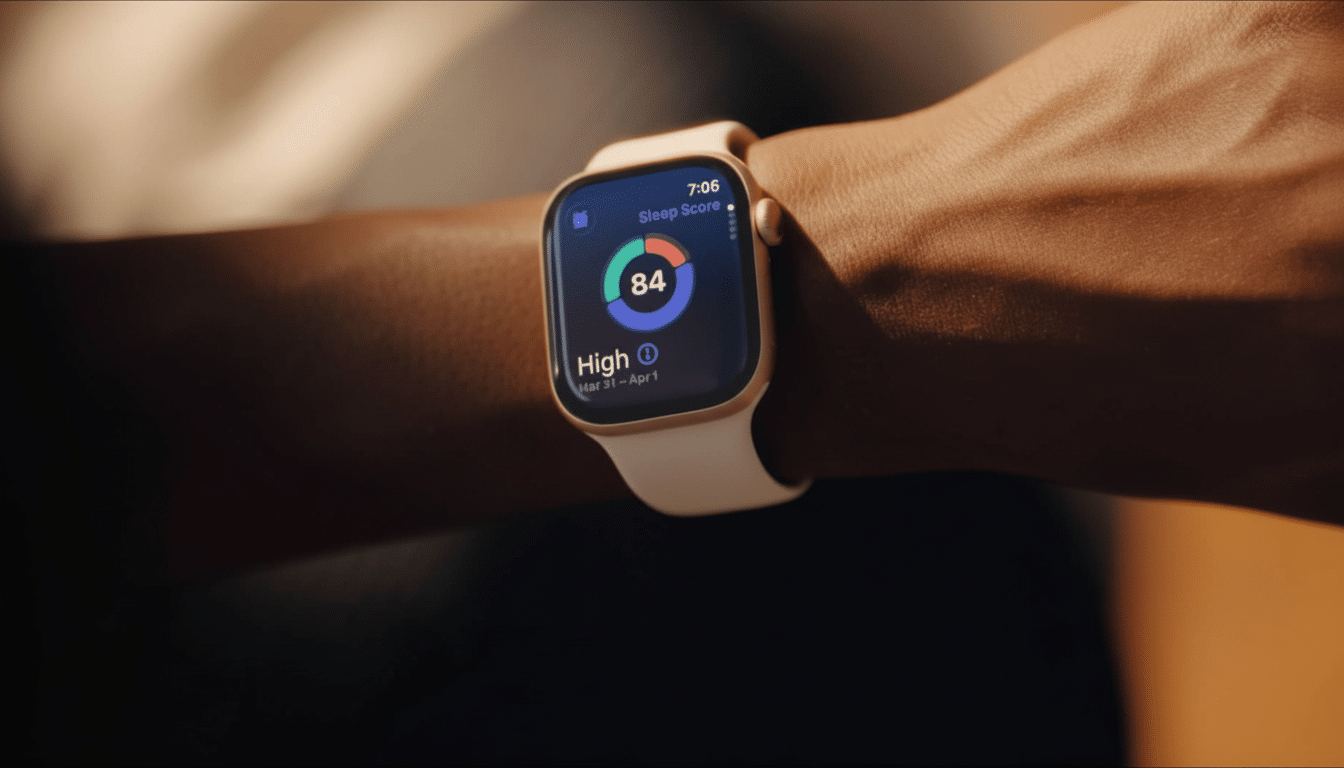Two companies dominate the modern smartwatch. Apple’s new Watch Series 11 and Samsung’s Galaxy Watch 8 are the flagships most people should consider, and having lived with both, the decision comes down to how you work out, what health gauges matter most to you and what phone rests in your pocket. Here’s a clean, data-informed comparison — and it has an obvious winner for now.
Design, comfort, and display
Both watches are premium, bright and quick, with vivid LTPO OLED panels that remain readable in direct sunlight. Apple’s squared-off rectangle remains just as glanceable for density-complicated designs, but Samsung has a more traditional take with its circular face on minimalist or sporty watchfaces.

Comfort is excellent on each. Apple’s haptics remain industry-leading — alerts are gentle but impossible to miss — and Samsung’s slimmer bezel and lighter case make them a bit less oppressive to wear overnight on some wrists. If you’re partial to physical navigation, Samsung’s touch bezel is still a clever, no-moving-parts answer.
Health sensors and clinical rigor
Medically oriented features Apple is still leading the way in polish and the clinical frame. The Watch Series 11 is ECG doctored with FDA clearance and long-term atrial fibrillation tracking that collates AFib burden over multi-week windows as well as generates physician-friendly PDFs. AFib burden and not just isolated events may better inform risk and treatment, cardiologists who do the testing have long said, a point also sounded by groups such as the American Heart Association.
Samsung counters with breadth. It also offers ECG, irregular heart rhythm notifications (receiving these requires Little Planet Mode and a Galaxy smartphone), skin temperature trends over time and finally a body composition sensor that uses bioelectrical impedance analysis (BIA) to estimate percent body fat and skeletal muscles — which are necessary for strength or weight management programs when tracked consistently. Sleep apnea detection is another thing Samsung got the all-clear for from this device in approved markets, which will then recognize signs and symptoms to discuss with a clinician. Both platforms rely on trend-tracking rather than raw spot checks, which is the right way to approach wearables.
On the reliability front, Apple’s data display and thresholds lean more towards the conservative and doctor-friendly. Samsung’s edge here is range: more metrics, including BIA, which many athletes and gym-goers want to see — even though they aren’t medical diagnostics.
Fitness training and AI smarts
Apple’s coaching is getting more context-aware. Here, the Smart Stack surfaces the right tile at the right time — recommending, for example, a Pilates workout when you walk into a studio — while its on-device language model does an even better job handling quick replies. Notification volumes change with the noise of your surroundings so a meeting doesn’t receive a blaring ping. In workouts, Apple’s guided cues and growing strength, HIIT and cycling profiles feel steady and reliable, particularly if you’re steeped in Fitness+ or third-party training apps.
Samsung leans into adaptive training. The Running Coach can also grade a baseline test, set pacing and heart-rate zones and spin up progressive plans toward a 5K or half marathon. Recover proposals take more account of sleep and recent load than Apple’s existing ones. If you lean endurance in your routine, Samsung’s feedback is a bit more actionable day to day.
With general AI, Samsung exerts more force on assistant-style tasks with deep integrations into Google services on Wear OS, while Apple’s on-watch intelligence is more quiet but pervasive — particularly when it comes to suggestions and communication. One is flashy, the other more invisible; both are moving quickly.

Battery life and performance
Performance is a non-issue on both watches — transitions are smooth and apps open quickly. Battery is where strategies diverge. The Galaxy Watch 8 typically gets me comfortably into a second day with similar usage, particularly if you do without always-on display. The Apple Watch Series 11 lasts a full day and some with mixed use; heavy GPS or LTE (gasp) activity still yearns for a nightly top-up. Fast charging means you can fast charge both of them before bed at night for overnight LOS tracking.
Apps, ecosystem, and connectivity
It’s the easiest call in the all comparison. If you have an iPhone, get the Apple Watch; it’s the only high-end smartwatch that directly syncs to iPhones (and all their apps) via iMessage, Health, Wallet and watch-first apps available on the App Store. If you are an Android user, the Galaxy Watch 8 works best with Samsung phones and plays well more generally across the Android ecosystem, with great Google Maps, Wallet and YouTube Music support.
Safety features are strong on both: fall detection and emergency SOS come as standard, and location sharing is simple. Apple has the smoothest handoff with its phones for safety alerts that Samsung offers though, and Samsung’s cross-device perks will only stand out if you’re already in its phone-and-earbuds family.
Market context and value
Apple has dominated shipments and Samsung is a strong number two, according to Counterpoint Research’s global smartwatch trackers. This matters because developer attention, and therefore accessory ecosystems, scale with size — which is a big part of why app quality as a whole is slightly higher still on the watchOS. On the other hand, Samsung phones get deals all the time, and that can tip value in favor of deal-minded buyers.
Verdict: the current winner
If you have an iPhone, the Apple Watch Series 11 is easily your best bet. And its clinical approach to heart health, polished haptics, vast app catalog and understated on-device intelligence render it the most comprehensive everyday smartwatch.
If you’re on Android—particularly if you train for runs or desire body composition tracking—the Samsung Galaxy Watch 8 is your winner. Stronger battery life, better endurance training programs and deep Google service integration make it the athlete’s choice.
Where it comes to overall polish and longer term health reporting, Apple still has the edge. But for Android fans, Samsung is the clear winner. The true victor is the one that aligns with your phone — and your objectives.

